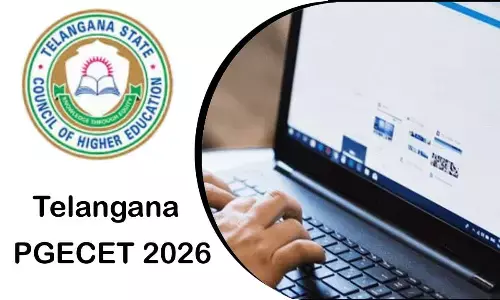Crafting tomorrow’s leaders through innovative higher education

Skill-integrated higher education has the potential to foster a culture of entrepreneurship and innovation. By providing students with opportunities to develop entrepreneurial mindsets and skills, educational institutions can incubate the next generation of innovators and industry disruptors. Whether through entrepreneurship courses, startup incubators, or partnerships with industry mentors, students are empowered to identify opportunities, take calculated risks, and translate their ideas into viable ventures. This not only benefits individual students in terms of career prospects and economic empowerment but also contributes to broader societal goals such as job creation, economic growth, and technological advancement.
In today’s rapidly evolving world, the demand for new age skill-integrated higher education has become increasingly pronounced. Traditional academic models, while still valuable, often fall short in adequately preparing students for the multifaceted challenges of the modern workforce.
Integrating new age skills into higher education programs equips students with the tools and competencies necessary to thrive in dynamic environments characterized by technological advancement, globalization, and interdisciplinary collaboration. Such skills encompass a broad spectrum, ranging from digital literacy and data analysis to critical thinking, problem-solving, and adaptability.
By incorporating these skills into curricula, educational institutions can better align with the needs of employers and society at large, fostering graduates who are not only academically proficient but also agile, innovative, and equipped to navigate the complexities of the 21st-century landscape.
One of the primary drivers behind the push for skill-integrated higher education is the rapid pace of technological innovation. In virtually every industry, advancements in automation, artificial intelligence, and digitalization are reshaping job roles and requirements. Consequently, there is a growing emphasis on equipping students with digital literacy skills, encompassing proficiency in software tools, coding languages, and emerging technologies.
By integrating these skills into higher education programs, students are better prepared to leverage technology as a tool for innovation and productivity, rather than viewing it as a barrier or threat to employment prospects. Moreover, fostering a culture of technological fluency empowers graduates to adapt to ongoing technological shifts, ensuring their long-term relevance in an ever-changing job market.
In addition to technical skills, there is a heightened recognition of the importance of fostering soft skills within higher education. Employers increasingly prioritize candidates who possess strong communication, teamwork, leadership, and problem-solving abilities. Integrating opportunities for students to develop these skills within their academic pursuits not only enhances their employability but also cultivates well-rounded individuals capable of effectively collaborating across diverse teams and contexts. Furthermore, fostering a culture of lifelong learning and adaptability is essential, given the likelihood of graduates encountering multiple career transitions throughout their professional journeys.
By instilling a growth mindset and a willingness to embrace change, skill-integrated higher education equips students with the resilience and flexibility needed to thrive in an unpredictable job market.
Another compelling rationale for integrating new age skills into higher education is the imperative to address global challenges such as climate change, social inequality, and healthcare disparities. Solving these complex issues requires interdisciplinary approaches that transcend traditional disciplinary boundaries. By fostering collaboration between students from diverse academic backgrounds, skill-integrated higher education promotes innovative thinking and holistic problem-solving strategies. Whether through project-based learning initiatives, cross-disciplinary research endeavors, or experiential learning opportunities, students gain valuable insights into the interconnected nature of real-world problems and the potential for collective action to effect meaningful change.
Moreover, skill-integrated higher education has the potential to foster a culture of entrepreneurship and innovation. By providing students with opportunities to develop entrepreneurial mindsets and skills,educational institutions can incubate the next generation of innovators and industry disruptors. Whether through entrepreneurship courses, startup incubators, or partnerships with industry mentors, students are empowered to identify opportunities, take calculated risks, and translate their ideas into viable ventures. This not only benefits individual students in terms of career prospects and economic empowerment but also contributes to broader societal goals such as job creation, economic growth, and technological advancement.










